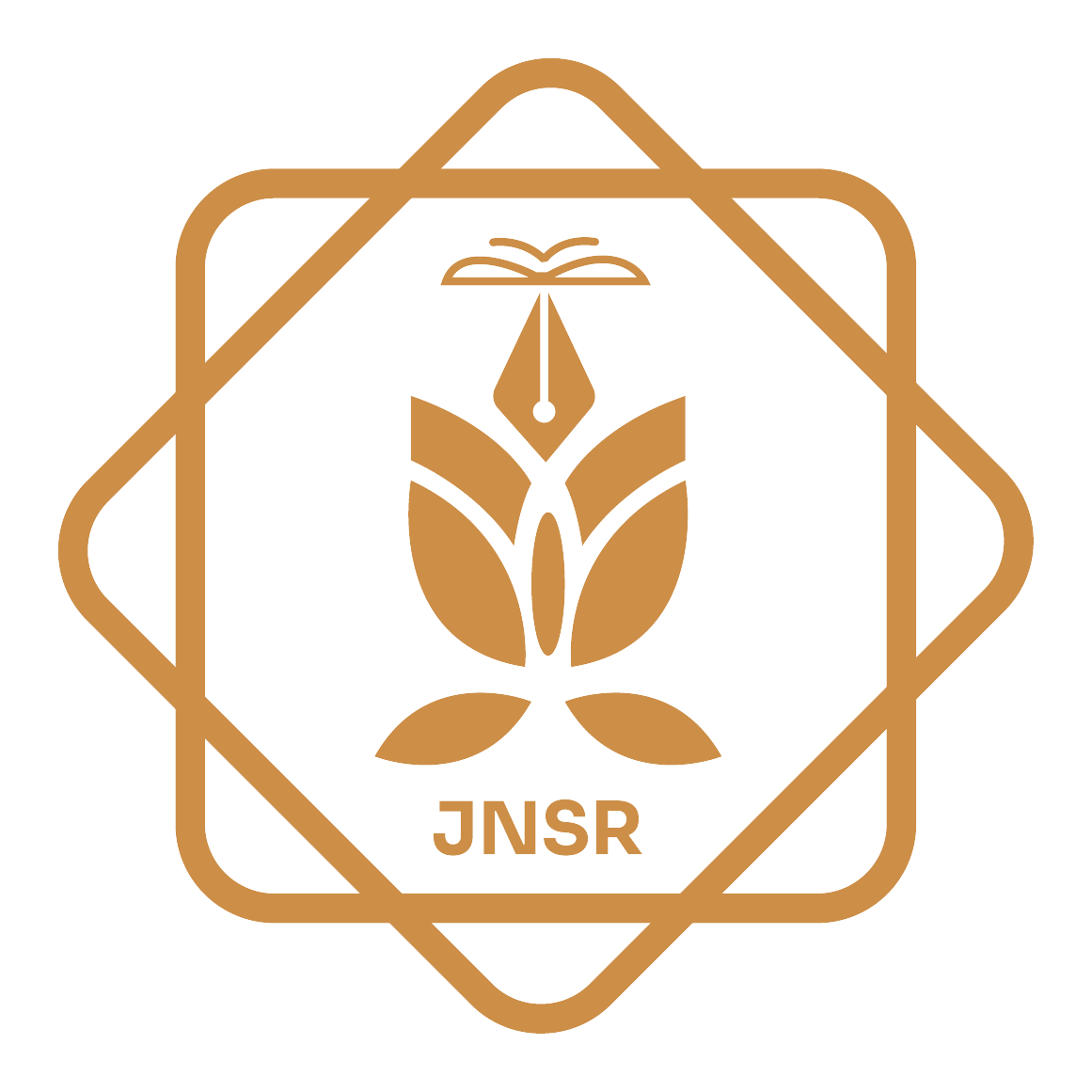Invitro Propagation of Pomegranate (Punica Granatum L.) Cv. Wonderful Cultivar
DOI:
https://doi.org/10.62810/jnsr.v2iSpecial.Issue.147Keywords:
Micropropagation, Wonderful Pomegranate, Proliferation, Rooting, Plant growth regulatorAbstract
The conventional method of propagation of pomegranate is time-consuming and tiresome. It does not ensure disease-free and healthy plants. The Present investigation aimed to optimize the conditions of culture medium, shoot proliferation, and rooting for mass production of pomegranate trees (Punica granatum L.) cv. ʻWonderful Cultivarʼ. For sterilization of axillary bud explants and shoot apexes of wonderful pomegranate treatment involving HgCl2 (0.1 %) for 3 min gave better sterilization. An efficient in vitro propagation for wonderful pomegranate using shoot tip and axillary bud explants is described. The best media for the establishment was observed on DKW medium for the first three weeks. After that, explants were subcultured on a WPM medium for proliferation and elongation. ½MS and full MS were used for rooting. The maximum number of shoots (3.9) per explant and shoot length (1.5 to 2.95 cm) were obtained on WPM medium supplemented with 0.8 mg/l B A P + 0.01 mg/L IBA in the medium. The highest rooting number was recorded on ½MS medium containing IBA 1mg/l—(1.4) roots per explant. A significantly higher number of shoots (2.5) and maximum length (2.95cm) of the shoot were recorded in 3 percent sucrose, (3000 lux) light intensity, and pH 5.8. Rooted plantlets were adopted and transferred to the soil successfully.
Downloads
References
Kaji, B. V., Ershadi, A., & Tohidfar, M. (2013). In vitro propagation of two Iranian commercial pomegranates (Punica granatum L.) cvs. 'Malas Saveh' and 'Yusef Khani.' Physiology and Molecular Biology of Plants, 19(4), 597–603. DOI: https://doi.org/10.1007/s12298-013-0193-3
Kalalbandi, B. M., Waskar, D. P., Khandare, V. S., & Gorad, D. S. (2014). Micropropagation studies on pomegranate var. Bhagwa. Indian Journal Horticulture, 71(4), 564-566.
Naik, S. K., Pattnaik, S., & Chand, P. K. (2000). High-frequency axillary shoot proliferation and plant regeneration from cotyledonary nodes of pomegranate (Punica granatum L.). Scientia Horticulturae, 85(4), 261-270. DOI: https://doi.org/10.1016/S0304-4238(99)00149-1
Nazir, U., Gul, Z., Shah, G. M., & Khan, N. I. (2022). Interaction effect of auxin and cytokinin on in vitro shoot regeneration and rooting of endangered medicinal plant Valeriana jatamansi jones through tissue culture. American Journal of Plant Sciences, 13(2), 223-240. DOI: https://doi.org/10.4236/ajps.2022.132014
Pagliarulo, C., De Vito, V., Picariello, G., Colicchio, R., Pastore, G., Salvatore, P., & Volpe, M. G. (2016). Inhibitory effect of pomegranate (Punica granatum L.) polyphenol extracts on the bacterial growth and survival of clinical isolates of pathogenic Staphylococcus aureus and Escherichia coli. Food Chemistry, 190, 824-831. DOI: https://doi.org/10.1016/j.foodchem.2015.06.028
Parmar, N., Kanwar, K., & Thakur, A. K. (2012). In vitro organogenesis from cotyledon derived callus cultures of Punica granatum L. cv. Kandhari Kabuli. National Academy Science Letters, 35(3), 215-220. DOI: https://doi.org/10.1007/s40009-012-0041-y
Parmar, N., Kanwar, K., & Thakur, A. K. (2013). Direct organogenesis in Punica granatum L. cv. Kandhari Kabuli from hypocotyl explants. Biological Sciences, 83(4), 569–574. DOI: https://doi.org/10.1007/s40011-013-0178-6
Parmar, N., Kanwar, K., & Thakur, A. K. (2015). High efficiency plant regeneration from cotyledon explants of pomegranate (Punica granatum L.) cv. Kandhari Kabuli. Vegetos, 28(2), 160-165. DOI: https://doi.org/10.5958/2229-4473.2015.00051.8
Pérez-Tornero, O., Tallon, C. I., & Porras, I. (2010). An efficient protocol for micropropagation of lemon (Citrus limon) from mature nodal segments. Plant Cell, Tissue and Organ Culture, 100(3), 263-271. DOI: https://doi.org/10.1007/s11240-009-9643-6
Prabhuling, G., & Huchesh, H. (2018). In vitro regeneration in pomegranate (Punica granatum L.) cv. Bhagwa using double nodal segments. Research Journal of Biotechnology, 13, 8.
Sherawat, A. R., Uppal, S., & Chowdhury, J. B. (2002). Establishment of plantlets and evaluation of differentiated roots for alkaloids in Rauwolfia serpentine. Journal of Plant Biotechnology, 11, 105-108. DOI: https://doi.org/10.1007/BF03263144
Singh, N. V., Singh, S. K., & Patel, V. B. (2007). In-vitro axillary shoot proliferation and clonal propagation of 'G 137' pomegranate (Punica granatum). Indian Journal of Agricultural Sciences, 77(8), 505-508.
Singh, P., & Patel, R. M. (2014). Factors influencing in vitro growth and shoot multiplication of pomegranate. The Bioscan, 9(3), 1031-1035.
Singh, P., & Patel, R. M. (2016). Factors affecting in vitro degree of browning and culture establishment of pomegranate. African Journal of Plant Science, 10(2), 43-49. DOI: https://doi.org/10.5897/AJPS2013.1119
Singh, P., Patel, R. M., & Kadam, S. (2013). In vitro mass multiplication of pomegranate from cotyledonary nodal explants cv. Ganesh. African Journal of Biotechnology, 12(20), 2863-2868.
Soni, M., & Kanwar, K. (2016). Rejuvenation influences indirect organogenesis from leaf explants of pomegranate (Punica granatum L.) 'Kandhari Kabuli.' The Journal of Horticultural Science and Biotechnology, 91(1), 93-99. DOI: https://doi.org/10.1080/14620316.2015.1110998
Downloads
Published
How to Cite
Issue
Section
License
Copyright (c) 2024 Azizullah Besharat, Guo Xiangping, Kazem Kamali Ali Abad, Hamid Sodaie Zadeh

This work is licensed under a Creative Commons Attribution-NonCommercial 4.0 International License.

























